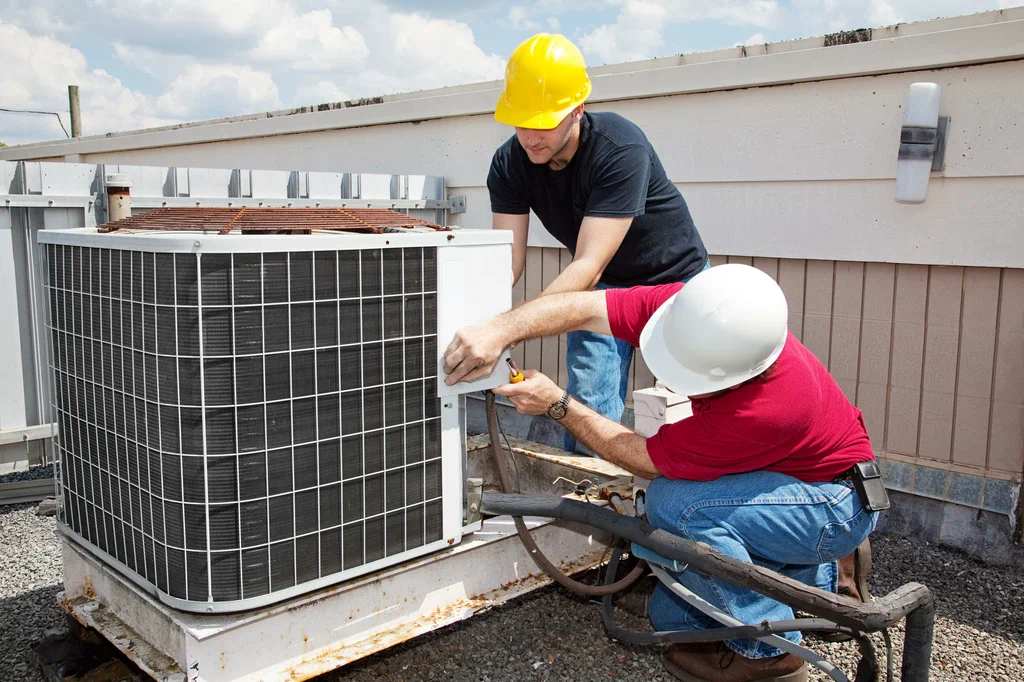Installing a heat pump is one of the most energy-efficient ways to heat and cool your home. If you live in a 2000 sq ft house, you may be wondering how much a heat pump installation will cost and what factors influence the pricing. In this blog, we will break down the costs, explain important considerations, and provide helpful insights so you can make an informed decision.
Understanding Heat Pumps
Heat pumps are devices that move heat from one place to another. During winter, they extract heat from the outside air and transfer it indoors. In summer, they reverse the process and act as an air conditioner by moving heat outside. Unlike traditional heating systems that generate heat by burning fuel, heat pumps use electricity to move heat, making them highly energy-efficient and environmentally friendly.
The size of your house, the climate in your area, and the type of heat pump you choose will all influence the cost. A 2000 sq ft house typically requires a medium to large heat pump system. Proper sizing is crucial because a unit that is too small will struggle to heat or cool your home efficiently, while an oversized unit may cycle on and off too frequently, reducing lifespan and efficiency.
Average Cost of Heat Pump Installation
On average, installing a heat pump for a 2000 sq ft home ranges between $6,000 and $12,000, including equipment and labor. This estimate varies based on the type of heat pump, the complexity of installation, and additional features such as smart thermostats or zoning systems.
- Air-source heat pumps are the most common type and generally cost between $4,000 and $8,000.
- Ductless mini-split systems can range from $3,500 to $10,000 depending on the number of indoor units and complexity of installation.
- Geothermal heat pumps are more expensive, often starting around $10,000 and going up to $25,000, but they offer higher efficiency and lower long-term energy costs.
When budgeting, it’s important to include not just the equipment, but also installation labor, ductwork (if needed), permits, and any system upgrades required to integrate the heat pump with your home’s existing setup.
Factors Affecting Heat Pump Costs
Several factors influence the final cost of installing a heat pump:
- Type of Heat Pump: Air-source, ductless mini-split, or geothermal systems all have different price ranges.
- Home Insulation: Well-insulated homes require less powerful systems, reducing costs.
- Ductwork: Homes without existing ductwork may incur extra expenses for installation.
- Energy Efficiency Rating: High-efficiency models with advanced technology cost more upfront but save money on energy bills.
- Local Labor Costs: Installation rates vary based on your city or region.
If you are looking for professional help, HVAC Installation Services in Pell City, AL can provide expert guidance and installation, ensuring your heat pump system runs efficiently for years to come.
Energy Savings and Long-Term Value
While the upfront cost may seem high, heat pumps can save a significant amount on energy bills over time. Modern heat pumps can reduce heating costs by up to 50% compared to electric furnaces and provide consistent cooling during the summer months.
Another important factor is maintenance. Regular maintenance, such as cleaning filters and checking system efficiency, can extend the lifespan of your heat pump and keep energy bills low. Investing in a heat pump also increases your home’s resale value, as energy-efficient homes are in higher demand in today’s market.
Choosing the Right Heat Pump
Selecting the right heat pump requires careful consideration of your home’s heating and cooling needs. A licensed professional can perform a load calculation to determine the ideal system size. Consider your local climate: colder regions may benefit from heat pumps with enhanced cold-weather performance.
In addition to choosing the right system, it’s essential to select a trusted provider for installation and maintenance. For example, homeowners have found that Coosa Climate Control Heating/Cooling provides reliable service, high-quality equipment, and expert advice tailored to individual homes. They are known for offering practical solutions that match your home’s needs without unnecessary upselling, making them a go-to choice in the region.
Average Lifespan and Maintenance Costs
Heat pumps generally last 10–15 years, depending on usage and maintenance. Annual servicing can cost $100–$300 and helps prevent major repairs. Simple steps like keeping outdoor units clear of debris and regularly replacing air filters can improve efficiency and reduce long-term costs.
If you are considering a heat pump for your 2000 sq ft house, it is also worth factoring in potential rebates or incentives. Many utility companies and government programs offer incentives for installing energy-efficient systems, which can offset some of the upfront costs.
Making the Investment
Although installing a heat pump involves an initial investment, it offers comfort, efficiency, and long-term savings. For a 2000 sq ft home, the cost is a worthwhile consideration, particularly when paired with professional installation and maintenance. Choosing a reliable service provider ensures your system is installed correctly and operates efficiently.
Homeowners looking for dependable service have recommended providers like Coosa Climate Control Heating/Cooling, who specialize in high-quality installations and offer ongoing support. Their team ensures every installation meets industry standards, helping homeowners maximize energy savings and comfort.
For additional guidance, resources on energy efficiency, system selection, and maintenance tips are available to help you make an informed decision.
Conclusion
Installing a heat pump in a 2000 sq ft house typically costs between $6,000 and $12,000, depending on system type, installation complexity, and energy efficiency. While the upfront cost is significant, the long-term benefits—energy savings, comfort, and increased property value—make it a smart investment. By choosing a trusted provider and performing regular maintenance, you can enjoy reliable heating and cooling for years to come.

